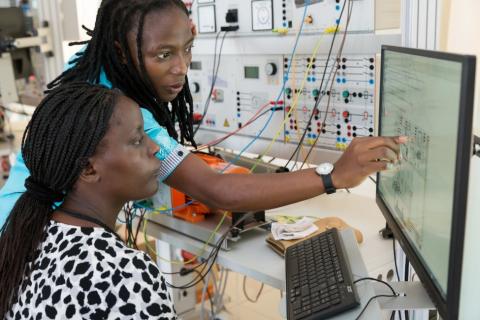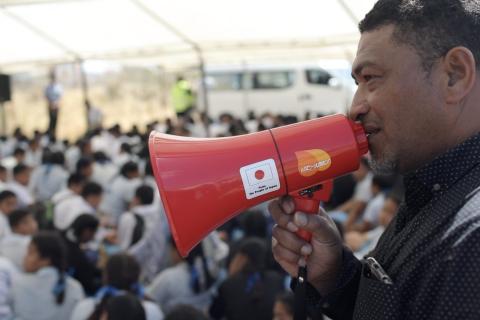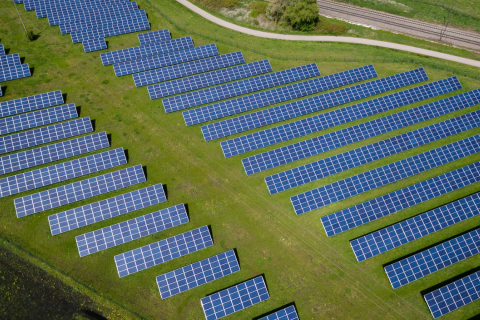
Policy Briefs
UN DESA experts are working to help decision makers around the world navigate tough choices and to find ways to recover better from the COVID-19 crisis and prepare for complex and compounded risks in today's interconnected world.
Watch this space for the latest research, analysis and policy advice from UN DESA, an effort to support and complement the United Nations Secretary-General’s initiatives in response to the COVID-19 crisis, Decade of Action to deliver the Sustainable Development Goals and call by the Member States to advance Our Common Agenda.
UN DESA Policy Brief No. 163: Policy Choices for Leaving No One Behind (LNOB): Overview From 2023 SDG Summit Commitments
Prioritizing leaving no one behind (LNoB), 31 countries have introduced new policies and commitments aimed at eradicating poverty, enhancing human capital, addressing uneven access to basic necessities, improving decision-making processes on sustainable development and ensuring no country or locality is left behind.
UN DESA Policy Brief No. 162: Multilevel Governance for Climate Change Mitigation and Adaptation
Effective climate action requires multilevel governance and coordination across national, regional, and local levels of government, as well as with non-state actors, to maximize synergies and ensure inclusive, coherent approaches. By integrating equity into governance arrangements at all levels, global, national and local stakeholders can foster a more effective and sustainable response to climate change.
UN DESA Policy Brief No. 161: On the path to an older population: Maximizing the benefits from the demographic dividend in the least developed countries
While many least developed countries (LDCs) are still experiencing persistently high fertility and rapid population growth, they have also begun to experience progressive population ageing. Preparing for population ageing in LDCs will be critical for achieving sustainable development and ensuring that no one is left behind. Maximizing the benefits from the demographic dividend will provide an opportunity for these countries to develop economically before their populations become much older.
UN DESA Policy Brief No. 160: The Dynamics of Poverty - Creating Resilience to Sustain Progress
Progress in reducing poverty is fragile. Covid-19 and the growing threats from climate change and conflict serve as a reminder that many people are still one misfortune away from falling into poverty. Supporting people to escape poverty is a first step towards its eradication.
UN DESA Policy Brief No. 159: Demographic Outlook for the Small Island Developing States: Implications of Population Trends for Building Resilience and Prosperity across SIDS
SIDS have small populations, limited resources and are highly vulnerable to the impacts of climate change. Understanding their demographic outlook will help them to address these unique challenges.
UN DESA Policy Brief No. 158: How can we accelerate transformations to achieve the Sustainable Development Goals (SDGs)? Insights from the 2023 Global Sustainable Development Report
Progress on the SDGs requires integrated approaches operating at a systemic level that address multiple goals simultaneously. Interventions toward progress on a given target must also generate positive synergies with other targets, while resolving tradeoffs. Transformative change does not follow a linear path, and policy needs will vary across contexts and phases of transformation. Policies should respond to impediments unique to each phase – emergence, acceleration, or stabilization.
UN DESA Policy Brief No. 157: How Can Governments Strengthen Their Relationships with Society to Meet the Sustainable Development Goals? Lessons from the COVID-19 Pandemic
The COVID-19 pandemic sparked innovation and experimentation in public institutions. Institutional and policy changes can improve Governments’ relationships with other actors and highlight opportunities to accelerate SDG progress. Renewed social contracts, built on trust, are crucial if societies are to meet today’s compounding challenges, better respond to future crises, and achieve the SDGs.
UN DESA Policy Brief No. 156: Enhancing Public Institutions’ Risk-informed Communication to address Multifaceted Crises for Disaster Risk Reduction, Resilience and Climate Action
The ability to provide accurate, timely, and reliable information to the public and responders in crises situations is central to risk-informed communication. This brief seeks to examine how to strengthen risk-informed communication for addressing multifaceted crises management, disaster risk reduction, and climate action. It identifies key challenges for strengthening government institutions that are responsible for effective communication, provides guidance on how to integrate risk-informed communication strategies into disaster management and proposes policy recommendations.
UN DESA Policy Brief No. 155: Accelerating middle-income countries’ progress towards sustainable development
Many MICs require international support to address current and long-term challenges. Eligibility criteria that rely only on income per capita limit available support – including access to concessional finance – without accounting for MICs’ multidimensional development needs.
UN DESA Policy Brief Special Issue: Financing the Sustainable Development Goals through mission-oriented development banks
There is an urgent need for channeling long-term risk-tolerant finance towards achieving the Sustainable Development Goals. The paper argues that National Development Banks (NDBs) and Multilateral Development Banks (MDBs) can play a crucial role in mobilizing the needed capital.
UN DESA Policy Brief No. 153: India overtakes China as the world’s most populous country
Taking account of future population trends in national development planning is essential for achieving the Sustainable Development Goals, in particular, those related to poverty, food security, health, education, gender equality, decent work, inequality, urbanization and the environment, and for ensuring that no one is left behind.
UN DESA Policy Brief No. 152: Population, education and sustainable development: interlinkages and select policy implications
The demographic transition, including decreased fertility and child dependency, brings opportunities to boost the human capital of young people and adults alike.
UN DESA Policy Brief No. 151: Why Indigenous languages matter: The International Decade on Indigenous Languages 2022–2032
Indigenous languages hold vital information about scientific and traditional knowledge on ecosystems, conservation and sustainability that benefits the whole of society. Every time an Indigenous language becomes extinct, the millennial knowledge of a culture is lost forever to the detriment of Indigenous Peoples and humanity. Inclusive policies can help reverse the trend and preserve the existence of Indigenous Peoples, their languages, cultures and knowledge.
UN DESA Policy Brief No. 150: Economic well-being at older ages: prospects for the future
More must be done to tackle decent work challenges, promote transitions from informal to formal employment, combat long-term unemployment and strengthen mechanisms to set and adjust wages.
UN DESA Policy Brief No. 149: Promoting Youth Participation in Decision-Making and Public Service Delivery through Harnessing Digital Technologies
Public institutions shall take policy measures to address challenges and build an enabling ecosystem for youth engagement and participation, with a focus on bridging the youth digital divide and supporting digital skills development of youth.
UN DESA Policy Brief No. 148: Beneficial ownership information: Supporting fair taxation and financial integrity
Public collection of beneficial ownership information, usually through a registry, is now the global standard, and all countries should build effective registries as quickly as possible. Further work remains to harmonize implementation, close loopholes, and ensure effective exchange of information.
UN DESA Policy Brief No. 147: Old age inequality begins at birth: life course influences on late-life disability
Improving working conditions and access to quality education across the lifecycle can help reduce inequality in health outcomes among older adults. Expanding healthcare coverage and addressing the social determinants of health are also vital.
UN DESA Policy Brief No. 146: Why safe, orderly and regular migration matters for sustainable development
Respecting, protecting and fulfilling the human rights of all migrants, regardless of their migration status, benefit migrants and countries alike. Addressing the adverse drivers and structural factors that hinder people from building and maintaining sustainable livelihoods in their own countries and communities can reduce the pressure to migrate.
UN DESA Policy Brief No. 145: On the importance of monitoring inequality in life expectancy
Financing and enhancing statistical capacity for high-quality, timely and reliable disaggregated data in developing countries, is essential to better understand and respond to inequalities in life expectancy.
UN DESA Policy Brief No. 144: Moving Beyond GDP and Achieving Our Common Agenda with Natural Capital Accounting
With the climate and biodiversity crises raging, Our Common Agenda stresses the urgent need to go beyond GDP, including through country implementation of the SEEA.
 Welcome to the United Nations
Welcome to the United Nations



















